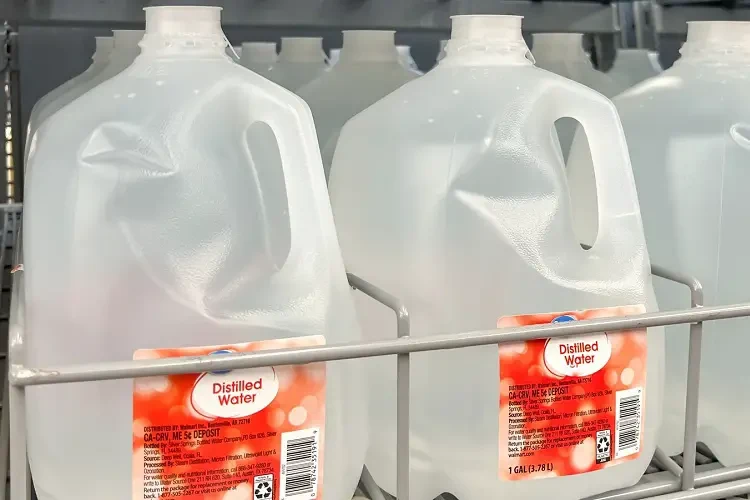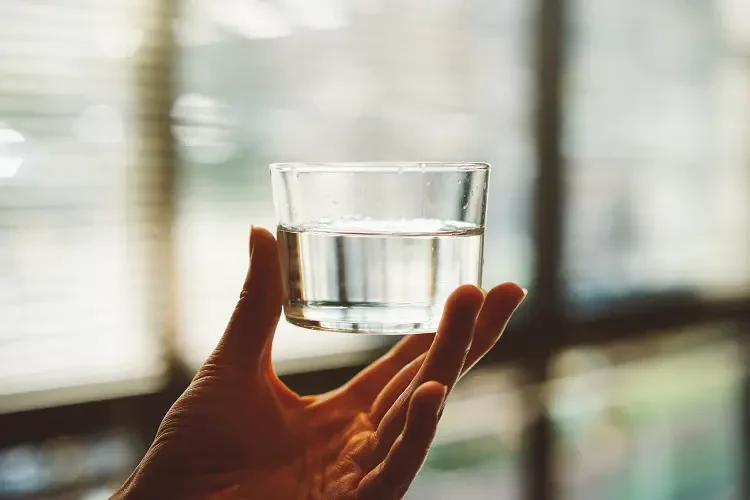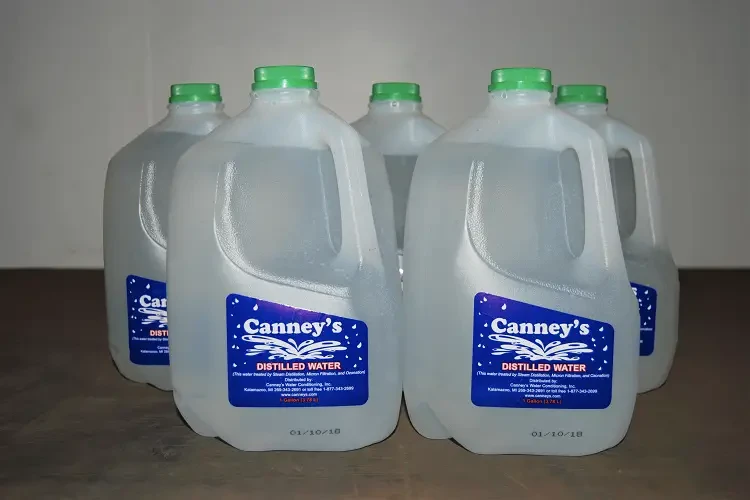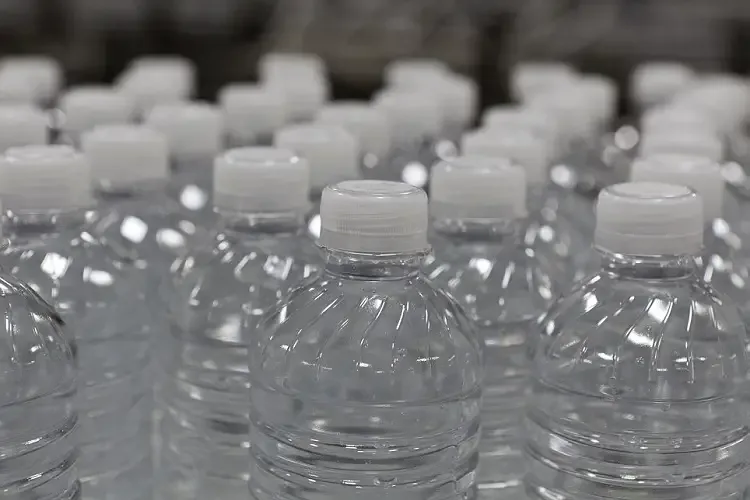SHTFDad may collect a share of sales or other compensation from the links on this page.
So, water. Water is the elixir of life. We all know well that water is the most important resource for all living organisms. But, you must agree, only some water you can drink.
First of all, you focus on the purity and quality of water. Most often, you will find distilled water among different types of water. So, what is actually distilled water?
It is the purest water, purified from various impurities. It goes through many stages of purification. You get it in the distillation process. People boil raw water. From the steam, you get condensate, which is then collected.
This method removes contaminants, leaving behind pure H2O. Therefore, distilled water is suitable even for babies. But there is a lot of talk about the shelf life of distilled water. People still argue about whether it spoils water.
Unlike many foods or chemical items like medicine, distilled water does not spoil. It does not expire in the normal sense of the word. But then, why do so many people think that distilled water can go bad?
Let’s debunk the myth about the expiration date of water and get a clearer picture of this miracle product.
The Longevity of Distilled Water
The longevity of distilled water depends largely on its storage conditions. It is important to store water in a clean, airtight container. Keep it away from direct sunlight and pollutants.
Then the distilled water can keep its purity for a long time. In general, if stored properly, distilled water can last indefinitely.
Then does distilled water not go bad? Not really. Even under ideal conditions, the quality of distilled water can still deteriorate.
It can absorb carbon dioxide from the air. It can slightly lower its pH and affect its taste. Also, you can get germs if the container is not sealed hermetically.
We recommend using distilled water in a reasonable amount of time to ensure the quality. Check the smell, appearance, and taste of the water regularly.
It will help determine if there has been any deterioration in quality. When in doubt, it is always best to use freshly distilled water, especially for children and babies.
Signs that Distilled Water May Have Lost its Purity
You already know what distilled water is. Now you need to figure out if distilled water spoils. It involves examining several indicators.
They may indicate that its quality has deteriorated. Here are some common causes and signs:
- Odor – Does distilled water have an unpleasant odor? It probably has bacterial contamination or the presence of impurities.
- Appearance – Do you see turbidity, sediment, or particles floating in the water? It, too, may indicate contamination.
- Taste – Distilled water should be clean and neutral in taste. Any unusual or extraneous flavors may indicate degradation or contamination.
- Mold or algae growth – Visible mold or algae growth is a clear sign of contamination.
- Open container – Has distilled water been stored in an open container for an extended period? Then it is prone to contamination.
Regular monitoring can help maintain the quality of water over a long period. If in doubt, we recommend discarding the water. It’s better than experiencing does distilled water go bad.
Expired Distilled Water: Is It Still Safe?
You already know that distilled water can go bad. It can be unsafe to use.
All because there are potential dangers from water degradation or contamination. Here are some potential risks:
- Microbial contamination – Over time, bacteria, fungi, or other microorganisms can contaminate expired distilled water. They risk infection or disease when consumed or used for medical purposes.
- Chemical contamination – The container or storage conditions are not properly maintained. Then chemicals or contaminants can seep into the expired distilled water. They will make it unsafe for consumption or other uses.
- Decreasing purity – As it ages, distilled water can lose its original purity. Then it accumulates impurities from the environment. It compromises its intended use.
To ensure safety, we recommend the use of fresh distilled water. Be sure to adhere to the manufacturer’s recommended storage guidelines.
If in doubt, it is best to exercise caution. Do not use distilled water that has expired.
Unlocking the Secrets to Extending the Lifespan of Distilled Water
So now you know the answer to the question: does distilled water go bad? But how do you extend the life of distilled water and keep it clean?
Take the following steps:
- Proper storage – Store distilled water in a clean, airtight container. This way, you can prevent contamination from outside sources.
- Avoid direct sunlight – Keep distilled water out of direct sunlight or ultraviolet light. It can promote algae growth or degrade water quality.
- Cool and dark environment – Store distilled water in a cool and dark place. Since high temperatures can promote the growth of microorganisms. It could affect water quality.
- Prevent cross-contamination – Use clean utensils and avoid transferring water from one container to another. It can introduce contaminants and shorten the life of distilled water.
- Regular inspections – Finally, check the water periodically for signs of contamination. These can be things like an unusual smell, appearance, or taste. If you notice any changes, throwing the water away is best.
By following these recommendations, you can extend the life of your distilled water. You will be able to ensure its continued purity for various applications.
Conclusion
Distilled water does not have an expiration date, but its quality can deteriorate over time.
While it may remain safe to use for an extended period, it is important to consider factors such as proper storage, prevention of contamination, and regular inspections.
Maintaining a clean, sealed container in a cool and dark environment can help preserve the purity of distilled water.
However, if there are any noticeable changes in odor, appearance, or taste, it is advisable to discard the water to ensure safety.
By following these guidelines, you can maximize the lifespan of distilled water and maintain its quality for various purposes.
References:




